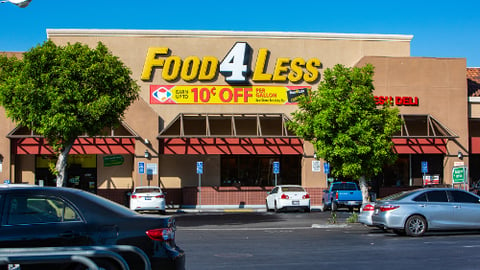How Blockchain Helps the Grocery Industry
As commerce moves inexorably online, earning and retaining consumer trust has become more complex than ever. With an immense range of choice at their fingertips, consumers have begun to expect full transparency on the products they buy. Is this item really what it says on the tin? Has that one been kept properly refrigerated throughout its journey to the store? Was it really organically produced?
If they can’t answer questions like these, brands and retailers risk losing their customers’ trust. And that often means losing their business. Accenture research shows that almost half the customers that switch brands do so because they’ve lost trust in the company.
Right now, this is a big challenge. Without a single version of the truth, tracking and tracing products across complex cross-border supplier networks is slow, expensive and error-prone. The lack of transparency is frustrating for consumers. It raises the risk of safety issues. And it prevents companies from identifying value opportunities in their supply chains.
The solution? An intelligent supply-chain capability that seamlessly connects parties across the ecosystem. Increasingly connected digital operations make this possible. Using blockchain (and other distributed ledger technologies), parties can, for the first time, work together to manage product information, from growing and manufacturing right through to distribution and retail.
Blockchain is revolutionary because it enables every party to write, read, share and use the same information – securely and in real time. Because the data on a blockchain is distributed among all participants, there’s a shared source of information. While it’s transparent, everyone involved can still control who sees what.
Consumer packaged goods (CPG) companies have been among the first to take advantage (our research shows they’re using blockchain in areas like warehouse management, sourcing and procurement). But the technology’s about to have a big impact on retail, too.
Over the next three years, more than half of the retailers in a recent Accenture survey expect blockchain to transform last-mile delivery. A similar number think it will play a key role in their ability to deliver hyper-personalized experiences.
Blockchain will introduce radical transparency to the consumer goods and retail industries. From food safety to anti-counterfeiting, and from international shipping to ethical manufacturing, brands and retailers will be able to solve some of their biggest pain points.
Scoping the Blockchain Opportunity
Here are a few examples. Instead of spending weeks or months retrospectively tracing a product’s origins and current location, with blockchain, companies would always have instant access to accurate information. That would be transformational for product safety: Contaminated or faulty products could be pinpointed in just a few seconds and removed from sale.
That’s not all. By combining blockchain with the Internet of Things (networks of internet-connected smart devices/sensors), companies could avert product safety issues before they even occur. Blockchain-connected sensors embedded along the supply chain would continuously check for the right environmental conditions and instantly identify tampering.
Proving product authenticity will be transformed, too. Today, consumers take the provenance of food products on trust. If they have confidence in a brand, they’ll believe what it says on the label.
Counterfeiters seek to exploit that trust, and they’re getting more sophisticated all the time. With blockchain, however, the $1.2 trillion global counterfeiting industry would take a real hit. By tagging each product with a RFID chip, manufacturers could trace exactly where their products end up. And with simple swipe of a smartphone app, consumers and B2B buyers could check the product journey from end to end.
Sustainability provides another opportunity. Today’s consumers pay closer attention than ever to the environmental and societal impacts of the products they consume (According to Nielsen, 75 percent of Millennials say they’d be likely to change consumption habits to reduce their impact on the environment).
Guaranteeing ethical and sustainable production – and communicating that to consumers – is becoming essential. But it’s incredibly resource intensive. Up to now, companies have struggled to connect directly with small-scale suppliers at the start of the supply chain and incentivize them to adopt sustainable practices. Blockchain emphatically changes that. Completely tamper-proof, the technology enables every step in the growing and manufacturing process to be tracked, providing an audit trail of exactly how, where and from what each product was made.
That’s what chocolate brand Chocolonely did. Working with Accenture, the company used blockchain to combat predatory labor practices in the cocoa industry. During the pilot, it tracked more than 900,000 kilograms of beans and verified them as being 100 percent free from slave labor.
Taking Advantage
Blockchain is a key architectural element of the intelligent supply-chain infrastructure that will help revolutionize the future of customer transparency and trust. It enables new ways for companies to engage with customers and consumers, supports new ways of working and creates new ways to deliver on brand purpose. So how can your business take advantage?
Start thinking about your blockchain strategy now. Consider how this technology will disrupt your ecosystem, whether you choose to adopt it. Remember that blockchain is a tool, not a solution in its own right. It can only deliver real value when it’s pointed at the right problems. Test it out with trusted partners across your supply chain. Also, don’t forget to move fast: Select pilot use cases, test, iterate and scale.












